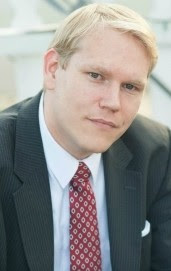Many European countries are largely dependent on Russia for natural gas, which has recently sparked a heated debate on the topic of energy security. Reliance on Russia for natural gas leaves countries vulnerable to energy supply disruptions, caused by political and commercial disputes as well as infrastructure failure. The debate surrounding the Russian natural gas pipeline Nord Stream II has raised further questions about Baltic Sea security policies and geopolitical implications of the pipeline construction for the Nordic and Baltic regions.
How does Nord Stream II affect Baltic Sea security? How can Russia use it in order to destabilize the Baltic Sea region? What challenges lies ahead for countries dependent on Russian natural gas? And why is the United States paying close attention to a natural gas pipeline between Russia and Germany?
These are some of the questions that will be addressed during an exclusive roundtable discussion on Thursday, October 4th at the Stockholm Free World Forum with Mr. Peter Doran, President and CEO of the Center for European Policy Analysis, and Anke Schmidt-Felzmann, Fellow at the Centre for Eastern Studies (OSW) in Warsaw and at the Foreign Policy Research Institute (FPRI).
TIME: Thursday 4th of October 12.00 – 13.00, Lunch served from 11.30.
VENUE: Stockholm Free World Forum (Frivärld). Kungsgatan 60, Stockholm.
RSVP: Mandatory pre-registration below.
The number of seats available is limited.
This event will be held in English.
______________________________
 Peter B. Doran is President & CEO of the Center for European Policy Analysis (CEPA). Doran is a recognized expert on Russia and Ukraine, transatlantic defense, European and Eurasian energy security and EU-China relations. He regularly contributes articles for Foreign Policy, Defense News, the National Review and the American Spectator. His commentary and analysis is featured in U.S. and European broadcast and print media, including Fox News, the Wall Street Journal and Newsweek. He is also the author of the popular “History of Oil” podcast on iTunes.
Peter B. Doran is President & CEO of the Center for European Policy Analysis (CEPA). Doran is a recognized expert on Russia and Ukraine, transatlantic defense, European and Eurasian energy security and EU-China relations. He regularly contributes articles for Foreign Policy, Defense News, the National Review and the American Spectator. His commentary and analysis is featured in U.S. and European broadcast and print media, including Fox News, the Wall Street Journal and Newsweek. He is also the author of the popular “History of Oil” podcast on iTunes.
Previously, Doran served as a Foreign Affairs Fellow in the U.S. Congress and as a George C. Marshall Fellow at the Heritage Foundation. He holds a master’s degree from Georgetown University’s Edmund A. Walsh School of Foreign Service in the Center for Eurasian, Russian, and East European Studies. He received undergraduate degrees from Arizona State University’s Barrett Honors College in History and Russian language.
 Anke Schmidt-Felzmann holds a PhD from the University of Glasgow, UK where she investigated and published on EU member states’ relations with Russia and the EU’s energy market and supply security policies. She is this autumn based at the Centre for Eastern Studies (OSW) in Warsaw as a Think Visegrad Fellow, writing on Nord Stream 2 and is also a Baltic Sea Fellow at the Foreign Policy Research Institute (FPRI). She teaches at the Norwegian University of Science and Technology (NTNU) in Trondheim and has recently lectured on European and international security policy at the General Jonas Žemaitis Military Academy of Lithuania, the General Tedeusz Kosciuszko Polish Military University of Land Forces and Vytautas Magnus University in Kaunas.
Anke Schmidt-Felzmann holds a PhD from the University of Glasgow, UK where she investigated and published on EU member states’ relations with Russia and the EU’s energy market and supply security policies. She is this autumn based at the Centre for Eastern Studies (OSW) in Warsaw as a Think Visegrad Fellow, writing on Nord Stream 2 and is also a Baltic Sea Fellow at the Foreign Policy Research Institute (FPRI). She teaches at the Norwegian University of Science and Technology (NTNU) in Trondheim and has recently lectured on European and international security policy at the General Jonas Žemaitis Military Academy of Lithuania, the General Tedeusz Kosciuszko Polish Military University of Land Forces and Vytautas Magnus University in Kaunas.
Over the past few years she has spoken at public seminars on broader security problems associated with the EU’s energy policy and published on different aspects of the controversies surrounding Nord Stream 2, most recently in the German journal Internationale Politik (No. 2 March/April 2018). Her academic and policy relevant research focuses on EU and transatlantic trade and energy conflicts with Russia, challenges to Baltic Sea security, information and critical infrastructure protection and security and defence cooperation on addressing threats in the North and in the Eastern neighbourhood.